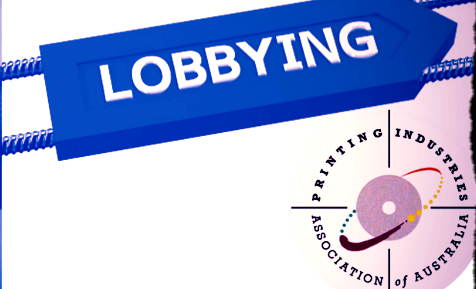
The PIAA represented by CEO Andrew Macaulay has met with 15 members of Parliament to address several issues currently facing the industry.
The PIAA says the visit to Canberra also spread the message to federal politicians of the industry’s reinvention and willingness to work with members of Parliament to bring about change for the industry.
While most talks relating to particular issues are still in progress, Macaulay says the PIAA managed to make headway during some of the meetings.
Macaulay reports the PIAA has engaged with communications minister the Hon. Mitch Fifield to arrange a meeting between himself and CEO of Australia Post Ahmed Fahour to discuss postal price increases.
“Fahour and Australia Post promised there would be no price change within the next 18 months, so I do not understand why there has been a price increase in pre-sorted mail six months after he promised this,” Macaulay tells Australian Printer.
“There will be two areas of focus during this meeting, firstly the inappropriateness of the recent price rises and lack of consultation with industry, and secondly the increasing rate of these price hikes.”
During Macaulay’s meeting with independent senator for South Australia (Family First) Bob Day, it was concluded that Day will put forth a Private Member’s Bill to amend the Electoral Act (Clth).
The amendment will seek to remove the requirement that attribution to a printer will be published on electoral material.
Macaulay says many printers and their staff are being harassed after their business name appears on work they produce for government.
“That Private Member’s Bill was offered by Day and we are having discussions with him about it, but before we progress with it we are asking the industry for their views on the change,” he says.
The PIAA has also secured a meeting with Greens spokesperson for trade senator Sarah Hanson-Young to discuss parallel importation rules affecting book printers.
“Everywhere else in the world where we have seen parallel importation rules introduced, the local book printing industry has declined dramatically,” Macaulay explains.
“Hanson-Young is concerned with the cultural impact parallel importation rules will have on society, in particular the impact on creativity in Australia, the ability to get new writers published in the Australian market and a potential decline in publishing and printing sectors.
He continues, “The PIAA stands with the Australian Publishers Association in opposing the parallel importation of books and we will continue that position.”
Macaulay is urging PIAA members to raise their concerns about particular issues for the association to lobby state or federal members of Parliament.
Comment below to have your say on this story.
If you have a news story or tip-off, get in touch at editorial@sprinter.com.au.
Sign up to the Sprinter newsletter

